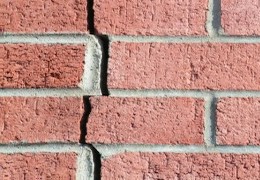Frequently Asked Questions
Assessment
- How do I know if I have a foundation problem?
- How much do you charge for your services?
- How long does the initial inspection last?
- Do I need to be present for the inspection?
- Are the estimators engineers?
- How do you determine what needs to be done?
- Is there a better time of year to do foundation work?
- Can I postpone foundation repairs and house leveling?
- Do I have to repair my foundation in order to sell my house?
- How much does an average job cost?
- Does insurance cover the cost of foundation repair?
Credentials
- Do you provide references?
- Are you a member of any trade organizations?
- Does G.A. Coffing & Sons Foundation Repair carry insurance?
- Do you have insurance?
- What type of warranty does G.A. Coffing & Sons Foundation Repair offer?
- How do I know that my repair plan is the correct one?
Process
- How long will my foundation repairs take?
- Do I have to call all the utilities before you begin work?
- Do the supervisors speak English?
- Do you clean the property after the job is completed?
- Will my landscape be damaged?
- How do Foundation Repairs affect plumbing?
- Will fixing my foundation close the existing cracks or open new ones?
- How long after the repairs should I wait to fix my mortar and drywall cracks?
- Will I be able to sell my home after the repairs are done?
Drainage
- Why is drainage so important?
- What about French Drains?
- Is a surface drain as good as a French Drain?
- How does a plumbing leak affect a foundation?
ASSESSMENT
Q: How do I know if I have a foundation problem?
A: Many common indicators of foundation problems are listed in the “Foundation Repair” page. However, the only way to be sure is to have one of our foundation estimators conduct an on site evaluation. If there is a foundation problem we can remedy, the estimator will provide a repair plan and price quote on site. If the estimator finds no problem with your homes foundation, we can provide you with a letter documenting the findings.
Q: How much do you charge for your services?
A: Our trained estimator will provide a complete analysis and honest evaluation to the homeowner or prospective buyer. If repairs are needed, we will provide a written quote on site.
Q: How long does the initial inspection last?
A: Our professional inspector will spend approximately 1 to 1.5 hours inspecting your home foundation and visiting with the homeowner.
Q: Do I need to be present for the inspection?
A: Yes, the inspector will need access to the interior of your home to inspect for signs of foundation and concrete slab problems and to take elevation readings.
Q: Are the estimators engineers?
A: Our professional estimators are not engineers, but they are highly experienced home foundation repair experts. They use sophisticated equipment, experience, and judgment to evaluate your home and its concrete slab.
Q: How do you determine what needs to be done?
A: Depending on the complexity of the home foundation problem, our professional inspector will inspect your home’s exterior and interior and take elevation readings of the interior. After the inspection, he will match the structural indications with the elevation readings to create a complete picture of what stresses are being exerted upon your home. Finally, a detailed floor plan and repair proposal is designed and the inspector will explain all aspects of your home foundation situation.
Q: Is there a better time of year to do foundation work?
A: Bedrock works year-round, and there is not really a difference as to when the work can be done. The only time we dont work is during heavy rain in respect of our employees.
Q: Can I postpone foundation repairs and house leveling?
A: Once a foundation begins to fail, it needs immediate attention to identify the problem and stop the damage from spreading.
Q: Do I have to repair my foundation in order to sell it?
A: There are latent defect disclosure laws that prohibit a homeowner from patching up cracks to cover a foundation problem and selling it to an unknowing buyer. Most mortgage companies will not issue a loan on a house to be purchased unless the foundation is repaired. The only exception would be a cash buyer who is willing to accept the house “as is.”
Q: How much does an average job cost?
A: At G. A. Coffing & Sons, the cost of our average foundation repairs is typically less than what most homeowners expect. Our average foundation repair is approximately $5,000.00.
Q: Does insurance cover the cost of foundation repair?
A: Most standard homeowners insurance policies state that foundation repair is covered only if the damage is the result of a plumbing leak.
CREDENTIALS
A: We have an extensive list of references available upon request.
Q: Are you a member of any trade organizations?
A: G. A. Coffing & Sons is proud to be a member of the BBB in good standing as well as the Austin and San Antonio Boards of Realtors.
Q: Does G. A. Coffing & Sons Foundation Repair. carry insurance?
A: Yes, G. A. Coffing & Sons Foundation Repair carries a General Liability policy of $1,000,000. Copies of certificate are available upon request.
A: Yes, and we are happy to provide you with certificates of insurance upon request.
Q: What type of warranty does G. A. Coffing & Sons Foundation Repair offer?
A: We certify that, if any adjustments are required during the life of property due to settlement resulting in a differential of more than one (1) inch in sixteen (16) feet, contractor will re-raise all areas previously underpinned without charge to owner, provided structure has not been damaged, altered, modified, or piers undermined by water leaks/intrusion, soil movement/erosion, heaving or vibration. Pier access will be gained by same means as original repair.
Q: How do I know that my foundation repair plan is the correct one?
A: For our clients’ reassurance G. A. Coffing & Sons recommends and includes third party Structural Engineers reports before and after the work has been done. The engineer will confirm the repair plan and then certify the repairs are completed accordingly.
PROCESS
Q: How long will my foundation repairs take?
A: The average foundation repair job takes 2-3 days. Depending on the scope of work, the time frame may be greater.
Q: Do I have to call all the utilities before you begin work?
A: We will handle contacting the utilities before foundation repair begins.
Q: Do the supervisors speak English?
A: Absolutely. All of our supervisors are bi-lingual.
Q: Do you clean the property after the job is completed?
A: Definitely. All dirt that is excavated from your property is placed on your driveway and hauled away that day or the next day and your driveway is thoroughly cleaned.
Q: Will my landscape be damaged?
A: The G. A. Coffing & Sons repair method requires only minimal disturbance to the landscape. In cases where plantings must be removed temporarily, every effort will be made to ensure their survival.
Q: How do Foundation Repairs affect plumbing?
A: Any time a slab foundation settles the plumbing pipes which are underneath and attached to the foundation can be damaged. They can also be damaged when you lift a house back towards its original position. Therefore, G. A. Coffing & Sons recommends and can include a third party plumbing test before and/or after a job is completed.
Q: Will fixing my foundation close the existing cracks or open new ones?
A: It is possible to do both. The goal of foundation repairs is to return the house to as near its original horizontal position while trying to limit damage to the home.
Brick Cracks – the stairstep brick cracks that you typically see on houses where the foundation has failed will generally close up when you lift the slab back into place. There is no guarantee that the cracks will close because each home is different and there are other factors that have more to do with the construction of the home.
Some small new drywall cracks are more common.
Q: How long after the repairs should I wait to fix my mortar and drywall cracks?
A: Your wait will depend on how much the house has been lifted. The slab should not move after it has been lifted, but the walls may need time to adjust to their new position. A general rule-of-thumb would be to wait 4-6 weeks after repairs are completed.
Q: Will I be able to sell my home after the repairs are done?
A: Yes, all methods used by G. A. Coffing & Sons Foundation Repair are HUD, FHA, and VA approved. When you are ready to sell your home, you will need to disclose the foundation repairs and show the engineers reports and warranty to your buyers. Your real estate professional can assist you with this process.
DRAINAGE
Q: Why is drainage so important?
A: Water accumulation along one area of a house can cause either destructive upheaval or foundation sinking. The Dallas-Fort Worth area Montmorillonite clay is geologically known to fail in high moisture conditions. Poor drainage drives the need for foundation repairs.
In the case of slab foundations, drainage correction may be the only way to solve the problem of upheaval caused by poor drainage.
For more information on drainage refer to the section of this web site on causes of foundation problems.
A: French Drains are sometimes needed as part of a drainage correction and foundation repair program to eliminate areas of sub-surface standing water or high water soil saturation.
Q: Is a surface drain as good as a French Drain?
A: The drain type is site dependent. Surface drains collect water on top of the ground. French drains draw off water that has penetrated the ground. Sometimes a hybrid solution is employed with a buried French Drain and surface water collection drains.
Q: How does a plumbing leak affect a foundation?
A: In the early stages of a leak, the soil swells and may create a noticeable hump in the floor. Continued leaking leads to soil erosion and a drop in the slab. Typically, Texas insurance companies reimburse homeowners for loss only if plumbing leak damage is massive and sudden. Slow leaks are seldom covered and are unfortunately a frequent cause of foundation problems.


 Business Hours
Business Hours